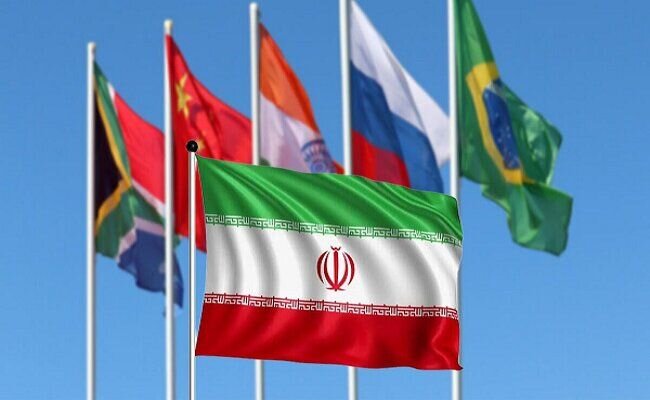IRCS chairs BRICS Civil Forum’s health working group

TEHRAN - Pirhossein Kolivand, head of the Iranian Red Crescent Society (IRCS), is the chairman of the health working group of the BRICS Civil Forum.
With the motto of ‘Strengthening Multilateralism for Just Global Development and Security’, the BRICS Civil Forum is being held from July 3-4 in Moscow.
Kolivand is scheduled to deliver a speech on ‘the right to development: equality and justice’ at the general meeting, Mehr news agency quoted Razieh Alishvandi, the IRCS director for international affairs, as saying.
Kolivand will also lead the health working group focusing on the theme of ‘healthy society, a prerequisite for the development of BRICS countries’, Alishvandi added.
Meanwhile, Alishvandi will deliver a speech with the theme of needs, priorities, and development: future cities of BRICS, public health, and individual well-being.
According to the BRICS secretariat, the high potential of the IRCS in various fields has made BRICS eager to cooperate with the Society, Alishvandi highlighted.
The official went on to mention part of these potentials such as pursuing goals based on humanitarian activities, taking measures to help those in need and victims of hazards and incidents, providing health and rehabilitation services, as well as conducting relief and medical services in the IRCS medical centers abroad.
The BRICS Civil Forum is a discussion and presentation platform for the civil society of the member countries, initiated by Russia in 2015.
As part of preparations for the Civil Forum, nine working groups were created to develop recommendations for BRICS leaders.
At the BRICS Civil forum, the civil community will elaborate on proposals to enhance dialogue in such fields as Equitable Development Goals, Education and Human Development, Sovereign Economic and Financial Development, New Technologies Ethics, Public Health and Human Well-being, Environment, Energy Transfer and Social Justice.
IRCS best candidate to chair health working group
In April, the IRCS was asked to head up the health working group of BRICS, The great capabilities and accomplishments of the IRCS in various fields have made BRICS eager to cooperate with the society, IRNA quoted Alena Peryshinka, co-chair of the BRICS Civil Forum, as saying.
She made the remarks in a meeting with Pirhossein Kolivand, the head of the IRCS, in Tehran.
Following discussions with the late Foreign Minister Hossein Amir Abdollahian, the IRCS was decided to be the representative of Iran in BRICS, she added.
Kolivand, for his part, called the IRCS the best candidate to chair the health working group while elaborating on the achievements of the IRCS in recent years.
The Iranian Red Crescent Society is active in various fields, such as relief operations in response to hazards and emergencies, he explained.
With some three million volunteers and 70,000 professional rescuers, the IRCS provides relief services on roads, mountains, and coasts ceaselessly.
Moreover, it has established crescent houses in different parts of the country where volunteers provide valuable relief assistance before and after emergencies.
The official stressed that education plays a key role in disaster management, noting that IRCS trains students how to prevent and handle emergencies as a way to raise public awareness in society.
Being equipped with 18 helicopters, hundreds of rescue vehicles, and warehouses storing essential items such as food and medicine, the IRCS has enhanced its readiness to address the crisis.
Currently, the IRCS factories produce a range of medicines, medical equipment, medicinal plants, and relief items. Moreover, it has concluded a contract with the International Federation of Red Cross and Red Crescent Societies (IFRC) to manufacture relief tents to be used in international crises.
Kolivand also highlighted the commitment of the IRCS to assist needy people both domestically and internationally citing its support for people affected by devastating earthquakes in Turkey, Afghanistan, and Syria.
Finally, he mentioned the potential of the society to share its expertise in providing relief and health services to the people in Africa, Asia, and Latin America through IRCS medical facilities.
The BRICS group, established in 2009, has emerged as a significant force shaping global economic discussions.
Iran, alongside Argentina, Egypt, Ethiopia, the UAE, and Saudi Arabia, received an invitation to join this influential bloc effective January 1, 2024, signaling a significant transformation in the geopolitical arena.
A revolution in healthcare system
Following the victory of the Islamic Revolution in 1979, many good improvements have been made in different fields, especially in the healthcare system, which has experienced notable growth both in quantity and quality.
Obtaining the first rank in pharmaceutical production in the region, producing 99 percent of needed drugs including biotech drugs for the domestic market, self-sufficiency in the production of vaccines, eradication of polio and other contagious diseases, and vaccination coverage from 30 to 100 percent are among scientific achievements in the field of medicine, which can be referred to as medical revolution.
Moreover, increase in the number of hospitals and medical centers; growth in the number of physicians, health specialists, and universities of medical sciences; improvement in medical equipment, and pharmaceutical products; increase in life expectancy, and reduce in mortality rate among mothers and infants, are other parts of the Islamic Revolution’s achievements in health and medical field.
Now, the coverage of primary health care for rural and urban populations is 100 percent. And the goal of establishing a medical-treatment network system with over 18,000 health houses and 10,000 health centers, as a global model, has been fulfilled. The distribution of hospitals and health services in different parts of the country has been done in line with health justice.
MT/MG
Leave a Comment